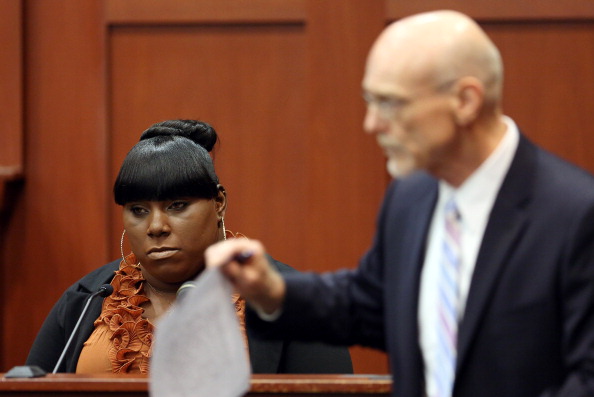A new study inspired by the trial of George Zimmerman for Trayvon Martin's' death sheds new light on the justice system's inability to capture the subtle nuances of Black vernacular.
University of Pennsylvania doctoral student of linguistics Taylor Jones authored a recent study that shows the failings of court reporters when documenting statements of Black people who take the stand.
In a recent interview with the CBC, Jones looked at Philadelphia court reporters as a test sample. His team worked with 27 stenographers and gave them 83 sentences to transcribe.
"The sentences were regular, mundane everyday speech," he told the outlet. "But they did have grammatical features of African-American spoken English. And they were spoken by people who have African-American Philadelphia accents."
What he discovered was the group of 27 was unable to transcribe Black West Philadelphians accurately.
"What we found is that they were not transcribed at the level of accuracy that we expect from court reporters — 95 percent accuracy."
Blavitize your inbox! Join our daily newsletter for fresh stories and breaking news.
Common phrases were misconstrued. For example, "He don't be in this neighborhood" is not transcribed in its intended usage. "That has a very specific meaning: The 'be' marks habitual action," Jones explained. "So, 'He don't be in this neighborhood' means 'He's not usually in this neighborhood.'"
Jones was primarily inspired to conduct the study because of the cross-examination of Trayvon Martin's friend, Rachel Jeantel, by Zimmerman's lawyer, Don West. When West read her testimony, Jones realized a cultural rift that could be used to discredit Black people in high-profile cases.
Many of the reporters featured in the study were confused by negative auxiliary inversion or double negatives. Statements like, "Don't nobody never say nothin' to them" were paraphrased incorrectly. The phrase was turned into a positive statement even though the speaker clearly states "no one tells them anything."
One of the shocking facts from the study shows that Black stenographers would also misinterpret sentences. Such mistakes could change a case entirely.
"What the court reporter transcribes becomes the official fact of what was said, regardless of what comes out of your mouth in the courtroom," Jones told the CBC. "And that can then be used in a number of places throughout somebody's journey through the judicial system — for instance, depositions before trial as we heard; but also appeals are often based almost exclusively on procedure and on the transcripts."
R. Kelly Put On The Performance Of A Lifetime In First Interview Following New Charges Of Sexual Abuse
Brazilians Use Carnival Celebrations To Demand Answers In The Killing Of Afro-Brazilian Activist Marielle Franco
From Welfare To Millionaire: How Alfred E. Nickson Found Success As A Young Network Marketer
